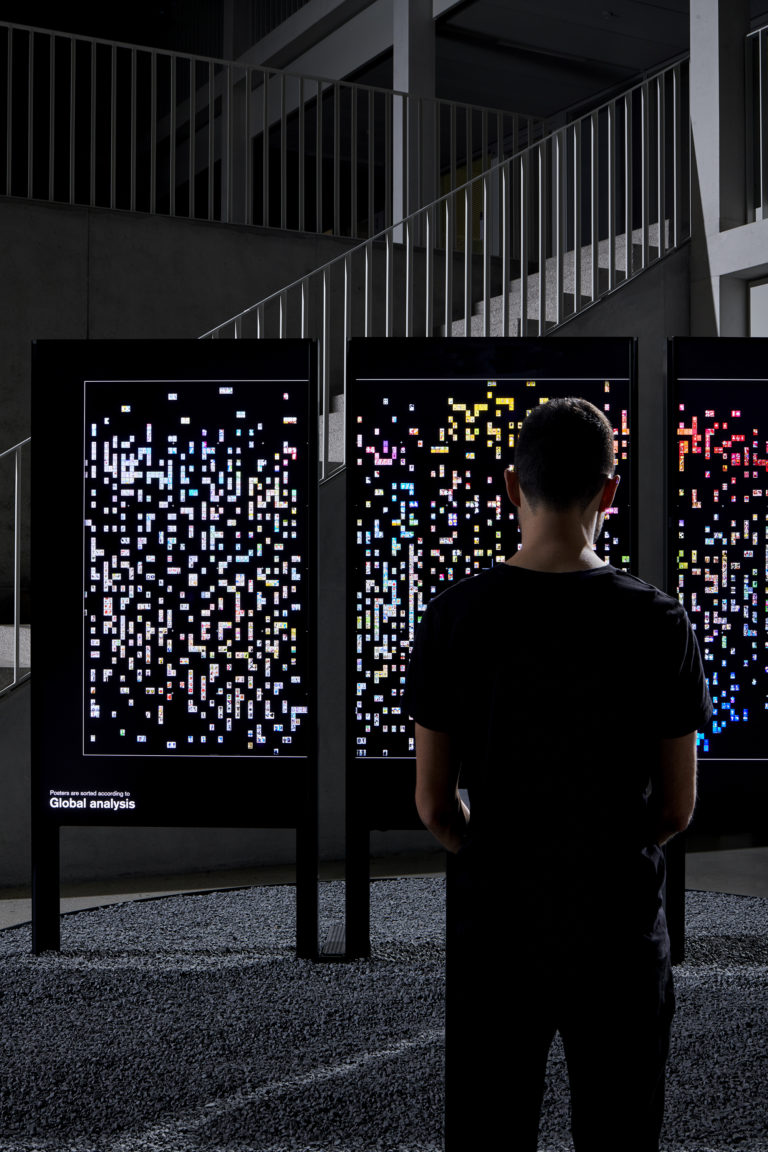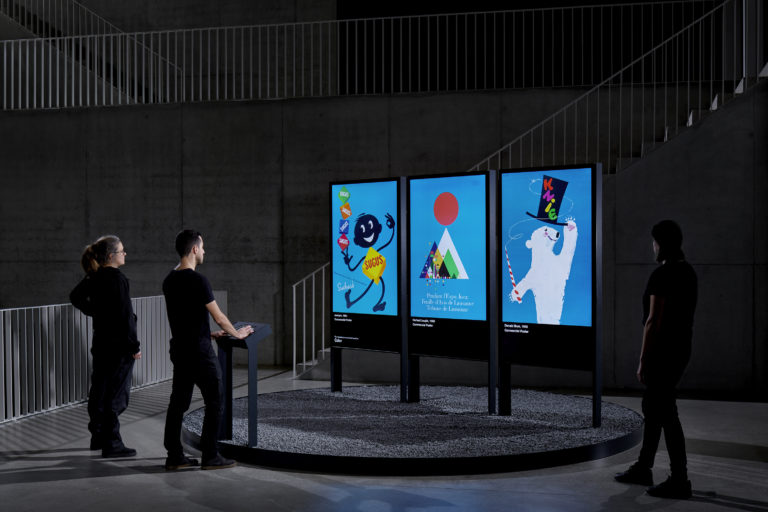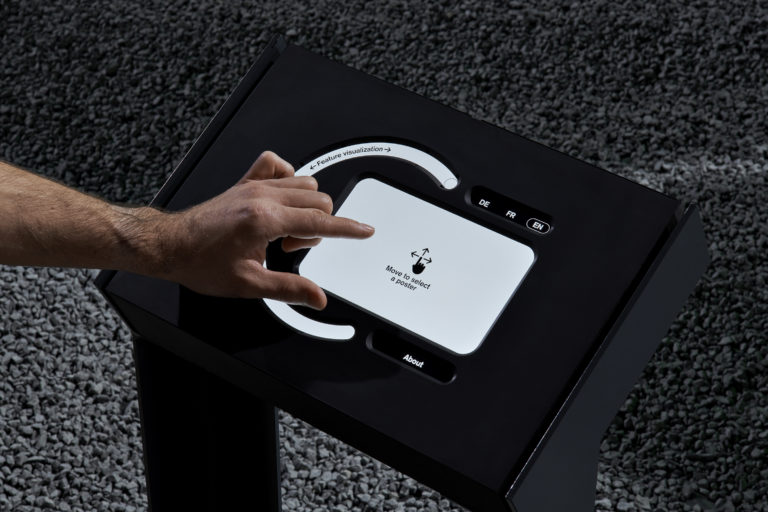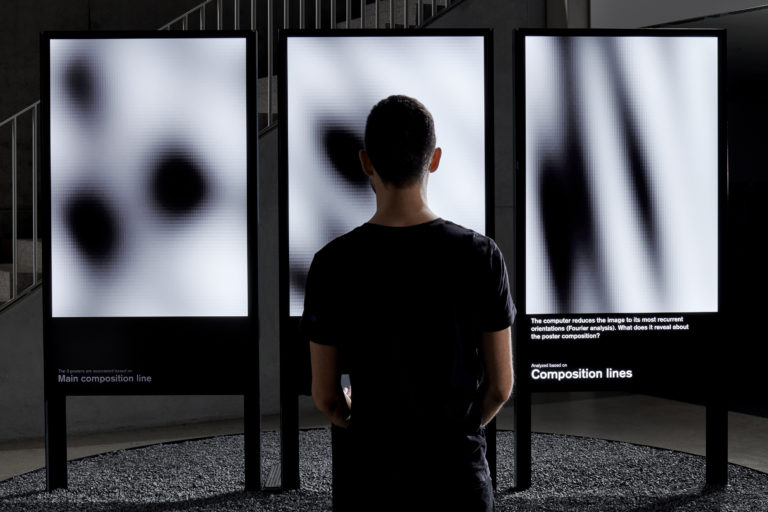Poster World
Working with the digitised poster collection of Zurich’s Museum für Gestaltüng, Poster World explores how emerging technologies and interaction design can enhance interest in digitised cultural heritage. The resulting installation reveals to the public, novice and experienced, the main elements of Swiss graphic design, a world-renowned art.
Although museums are increasingly digitising their archives, few people beyond experts and academics ever actually look at them online. How then, could we open up this rich heritage to wider audiences? And what part could artificial intelligence play to bring the content to life?
The EPFL+ECAL Lab explored these challenges through a design research project in collaboration with the Museum für Gestaltung in Zürich. Working with the museum’s poster collection, the objective was to design and deliver an installation for the museum that would enhance the public’s cognitive understanding and emotional connection with the archive. From the offset, the team looked at how calculating similarities between digitised documents could create new user experiences with emotional and cognitive impact. Throughout the project, designers worked with engineers to investigate bespoke algorithms and graphic representations of their outputs.
Combining curator expertise with machine learning techniques, Poster World reveals the secrets of poster composition to the public, allowing visitors to understand the poster’s graphical richness. The installation analyses the posters, extracts data and generates a new representation of the poster that visualises a particular feature.
In another layer, Poster World brings together three visually similar posters on the basis of a chosen criterion. To confer cultural relevance on these connections, the EPFL teams trained artificial intelligence on associations produced by the museum, especially its books, rather than using the standard data and tools. They then tested the results with both designers and the general public.
The project also had the mission of emphasising the relationship between each poster and the collection. The collection view rearranges according to the selected settings. The system designed by the EPFL+ECAL Lab makes it possible to quickly process other selections made by the curatorial team. With its ability to manage associations among several billion possibilities, Poster World does not replace the curation work, but amplifies and complements it, in order to enhance the museum’s collection in an unprecedented way.
This approach has been the subject of studies on user perception following research protocols from psychology. The results show how digital technology can lead to gains in attractiveness and knowledge among the public. And that it is possible, with a single installation, to bring a significant impact to both novice and professional audiences.
Poster World was inaugurated at the Museum für Gestaltung, Zürich in February 2022.
Direction
Project Management & Art Direction
Research Assistant
Interaction Design
André Andrade in cooperation with Lara Défayes
Creative Coding & Software Engineering
Delphine Ribes, Yves Kalberer, Céline Dupuis, Lazar Stojkovic
Industrial Design
Sound Design
UX Psychology
Dr Andreas Sonderegger, Andrea Schneider with assistance of Sofia Viola and Renée Favre
Photography Credits
© EPFL+ECAL Lab / Daniela & Tonatiuh
In Cooperation with
Mathieu Salzmann, Senior Researcher, CVLab
Frédéric Kaplan, Professor, DHLab
Valentine Bernasconi, Master thesis, Digital Humanities
Bastien Favre, Bachelor semester project, Computer Science
Syed Talal Wasim, Master thesis, Computer Vision





